Somali pirates
continue their attacks against international ships in and around the
Gulf of Aden, despite the deterrent of stepped-up international naval
escorts and patrols - and the increased failure rate of their attacks.
Under agreements with Somalia, the U.N, and each other, ships belonging
to fifteen countries now patrol the area. Somali pirates - who have won
themselves nearly $200 million in ransom since early 2008 - are being
captured more frequently now, and handed over to authorities in Kenya,
Yemen and Somalia for trial. Collected here are some recent photos of
piracy off the coast of Somalia, and the international efforts to rein
it in. (30 photos total)
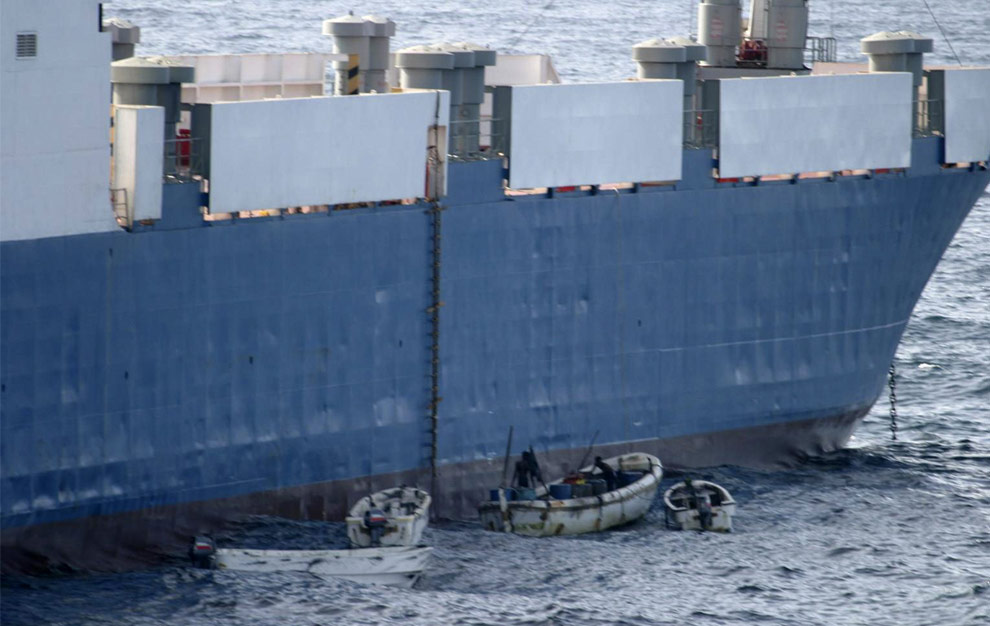
This
handout photo shows Somali pirates hijacking the MV Faina, a cargo ship
owned and operated by Kaalbye Shipping Ukraine on September 25, 2008.
The pirates ultimately released the MV Faina and its cargo of 33
Soviet-era T-72 tanks plus other weapons on February 5, 2009 following a
ransom payment of $3.2 million, a local man who helped negotiate the
deal said. (REUTERS/U.S. Naval Forces Central Command Public
Affairs/Handout/Files) #

In
this photo released by the United States Navy, Somali pirates holding
the merchant vessel MV Faina stand on the deck of the ship after a U.S.
Navy request to check on the health and welfare of the ship's crew in
the Indian Ocean off the coast of Somalia. (AP Photo/U.S.Navy, Petty
Officer Jason Zalasky) #
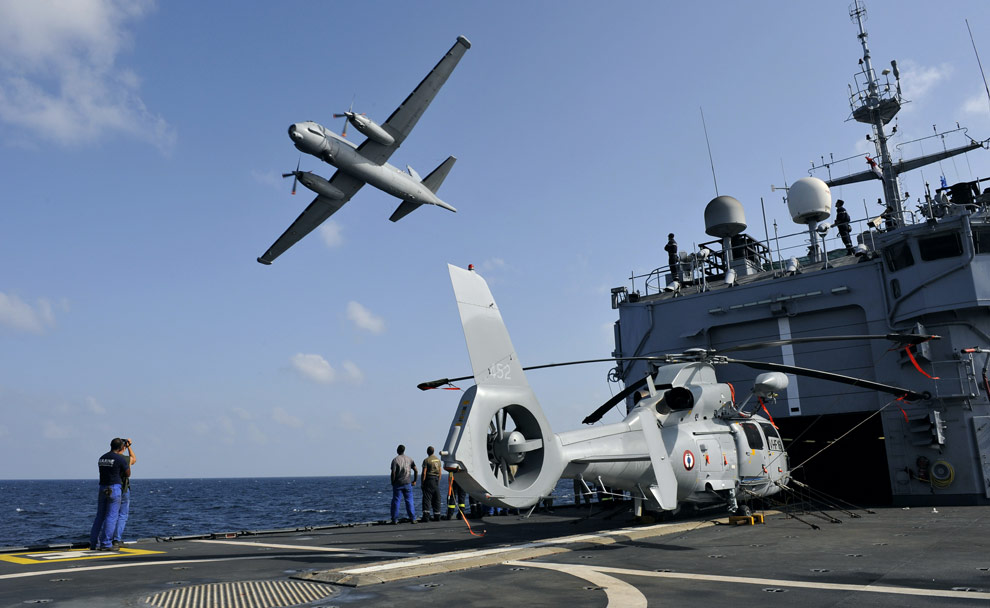
A
French Atlantic plane passes over the French Frigate Le Floreal of the
EPE (Embedded Protection Team), in the Gulf of Aden on January 10, 2009,
as they escort a Danish ship with sensitive freight, off the coast of
Djibouti, as part of an assignment to escort commercial ships in this
area. (STEPHANE DE SAKUTIN/AFP/Getty Images) #
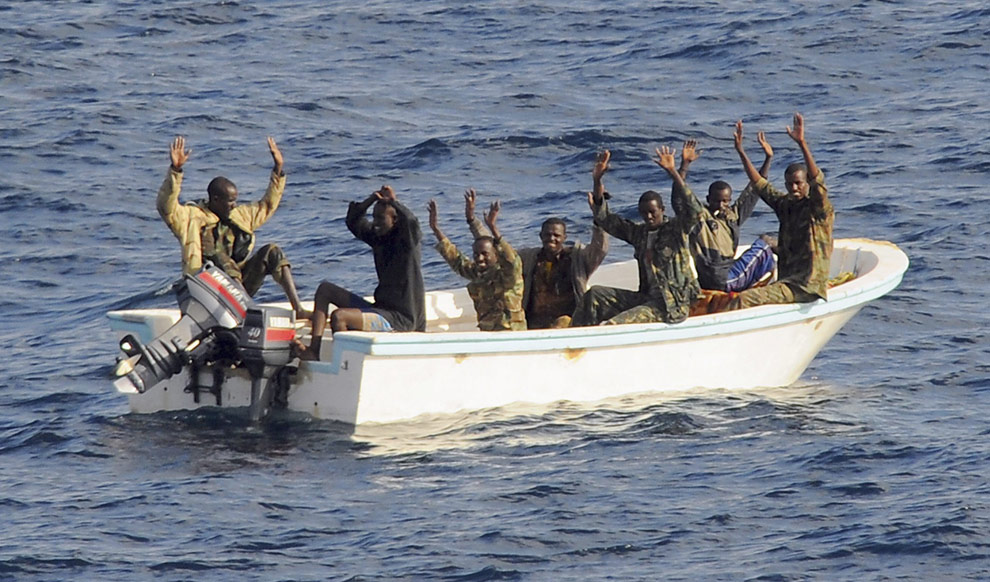
Suspected
pirates keep their hands in the air as directed by sailors aboard the
guided-missile cruiser USS Vella Gulf (CG 72) (not shown), in the Gulf
of Aden, February 11, 2009. A multinational naval force seized the seven
suspected pirates in the first such action in its anti-piracy campaign,
the U.S. Navy said. (REUTERS/Jason R. Zalasky/U.S. Navy/Handout) #
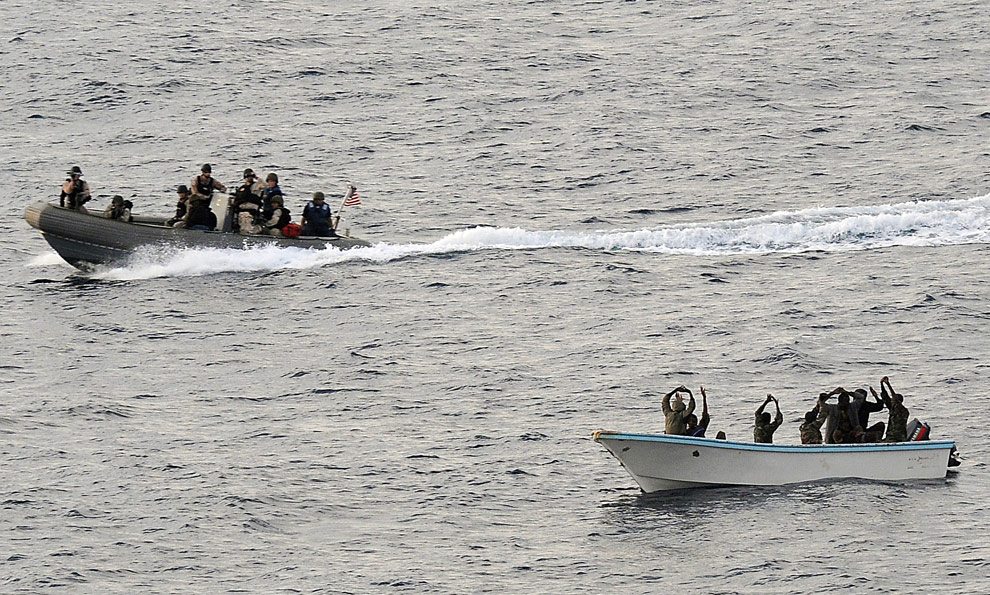
Search
and seizure team members from the guided-missile cruiser USS Vella Gulf
close in to apprehend suspected pirates in the Gulf of Aden February
11, 2009. The Vella Gulf is the flagship for Combined Task Force 151, a
multi-national task force conducting counterpiracy operations to detect
and deter piracy in and around the Gulf of Aden, Arabian Gulf, Indian
Ocean and Red Sea. (Jason R. Zalasky/AFP/Getty Images) #
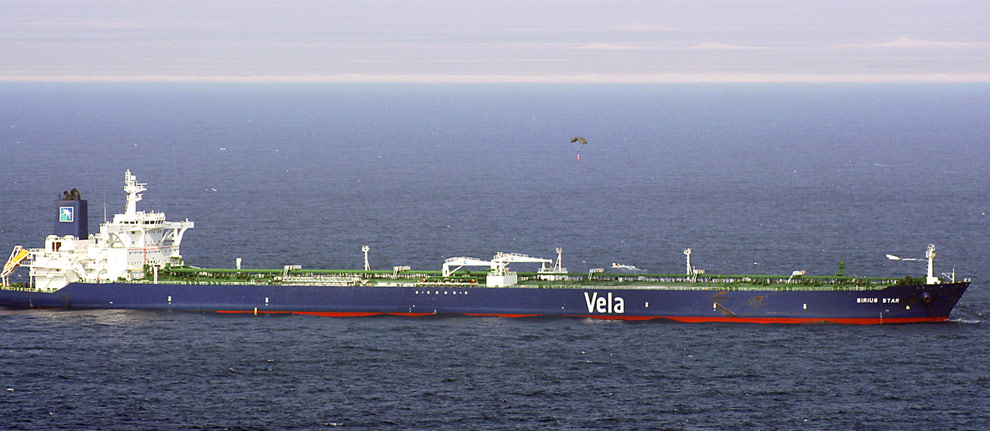
A
parachute dropped by a small aircraft is observed by the U.S. Navy as
it drops over the MV Sirius Star during an apparent payment via a
parachuted container to pirates holding the Sirius Star off the coast of
Somalia, January 9, 2009. Somali pirates then freed the Saudi
supertanker seized in the world's biggest ship hijacking for a $3
million ransom - but five drowned when their boat capsized as they were
making off with their share. (REUTERS/David B. Hudson/U.S. Navy
photo/Handout) #

Commandos
from French frigate Le Floreal arrest nine Somali pirates in the Gulf
of Aden in this January 27, 2009 photo released on Wednesday by the
French Navy. As foreign navies fight increasingly brazen gangs that
hijack commercial vessels in busy shipping lanes. France has captured 57
pirates in seven such operations since last April. (HO/Reuters) #
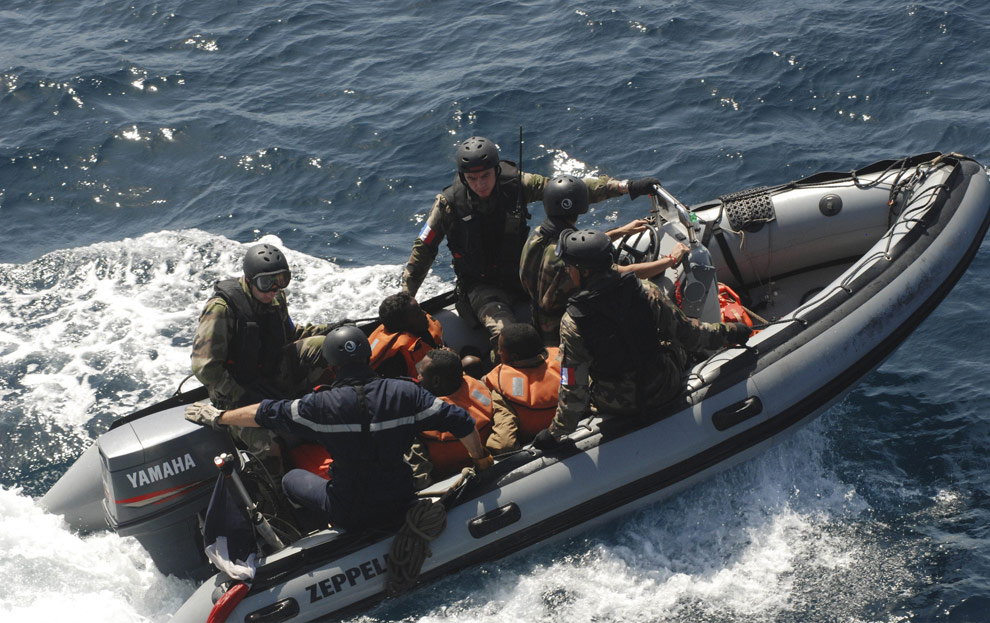
This
photo taken Sunday, Jan. 4, 2009 and provided by French Defense
Ministry shows suspected pirates, intercepted by Marine commandos of the
French Navy in the Gulf of Aden, off Somalia coasts. French government
officials say the Jean de Vienne intercepted and captured 19 pirates
Sunday as they tried to take over two cargo ships, one Croatian and the
other Panamanian. (AP Photo/French Navy/French Defense Ministry/HO) #
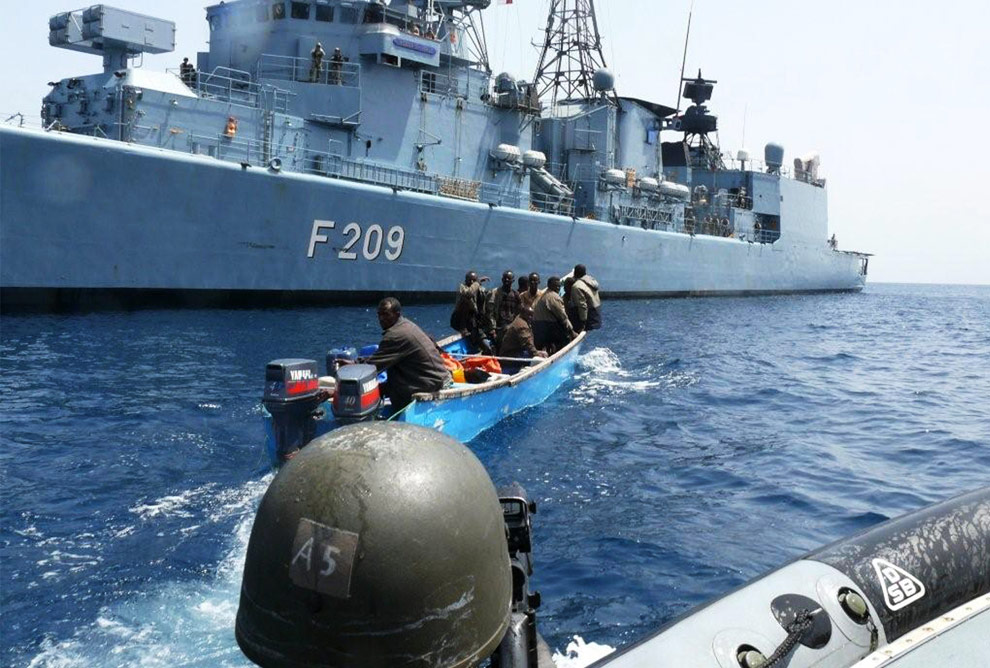
Picture
released by the German Bundeswehr on March 4, 2009 shows Bundeswehr
soldiers approaching pirates in the Gulf of Aden off Somalia on March 3,
2009, after frigate Rheinland-Pfalz (background) had received a
distress call from a German-owned container ship saying she was under
fire from pirates armed with bazookas and machine guns. The frigate then
dispatched a helicopter which together with another chopper from the US
naval ship Monterey stopped the attempted attack by firing warning
shots. German soldiers boarded the pirate vessel and took the nine into
custody, the German military said. (BUNDESWEHR/AFP/Getty Images) #
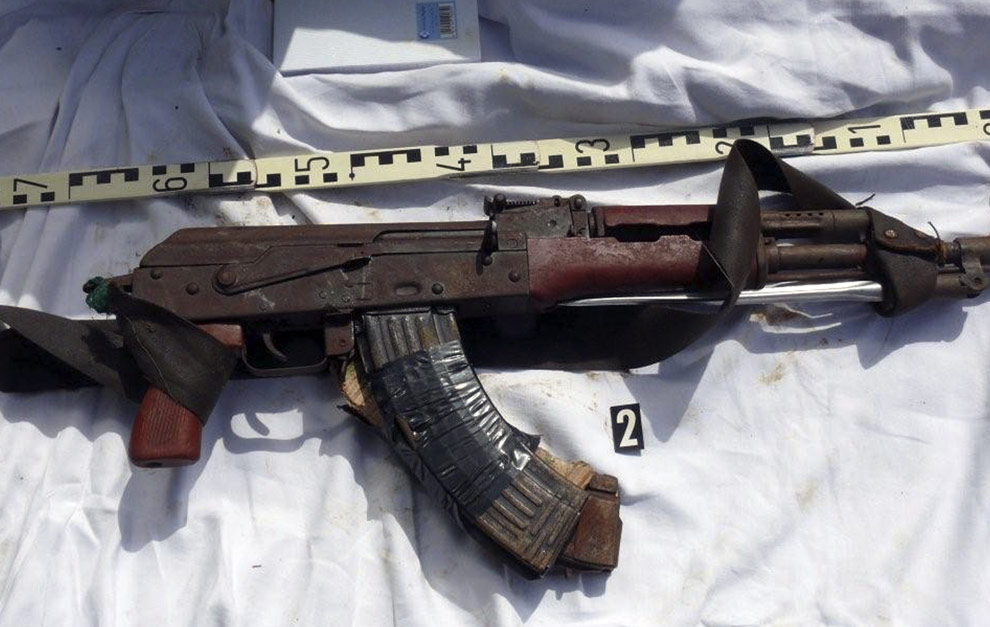
A
rusty Kalashnikov assault rifle, confiscated from pirates detained by
German navy from frigate Rheinland-Pfalz in the Gulf of Aden off
Somalia's coast on March 3, 2009, in this picture made available on
March 4, 2009. The German navy detained nine people on March 3, 2009
after they tried to attack a German merchant ship, German media
reported. (REUTERS/Bundeswehr) #
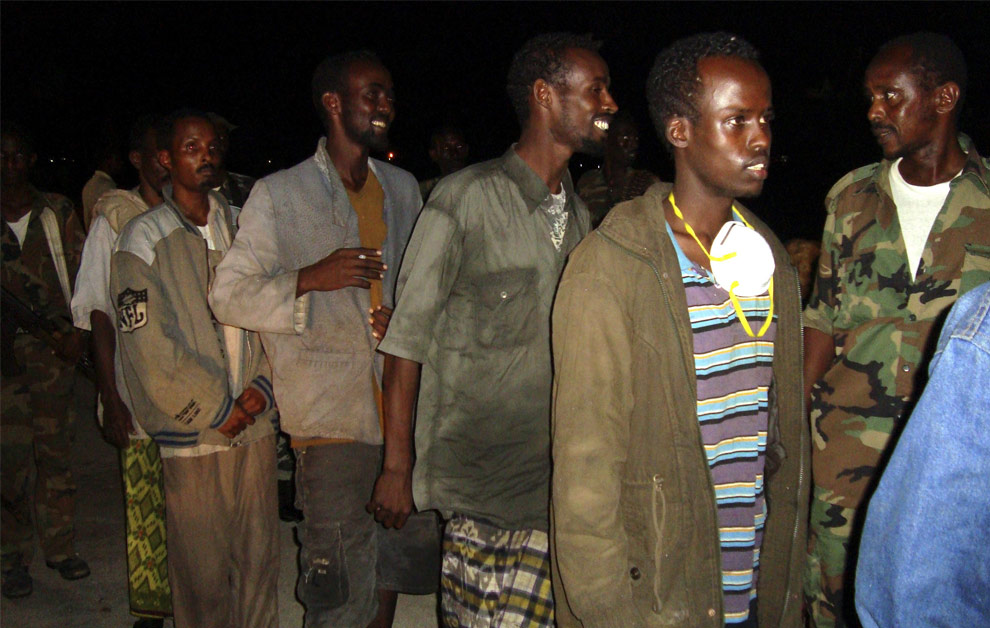
Somali
pirates captured in the Gulf of Aden are presented to the Puntland
marine forces in the northern port town of Bosasso, Somalia on March 2,
2009. U.S. forces handed over nine pirates to Somali authorities of the
semi-autonomous region of Puntland on Monday, said local official.
(REUTERS/Stringer) #
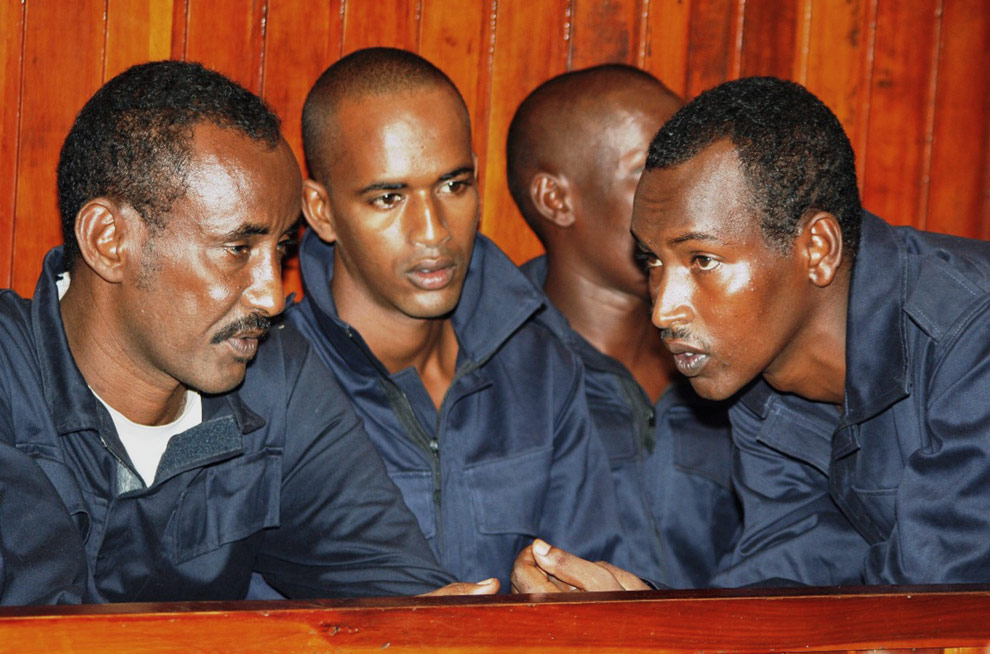
Some
of the eight suspected Somali pirates at the Mombasa Law courts,
Mombasa, Kenya, Wednesday, Jan 14, 2009, when the hearing of their
piracy case started. The pirates were arrested early last month by naval
officers from a British Naval Ship MV Knight Wave which has been on
patrol along the Indian Ocean waters. Two British Naval officers were
the first to give their evidence against the pirates. The hearing of the
case will continue for three days.(AP Photo) #
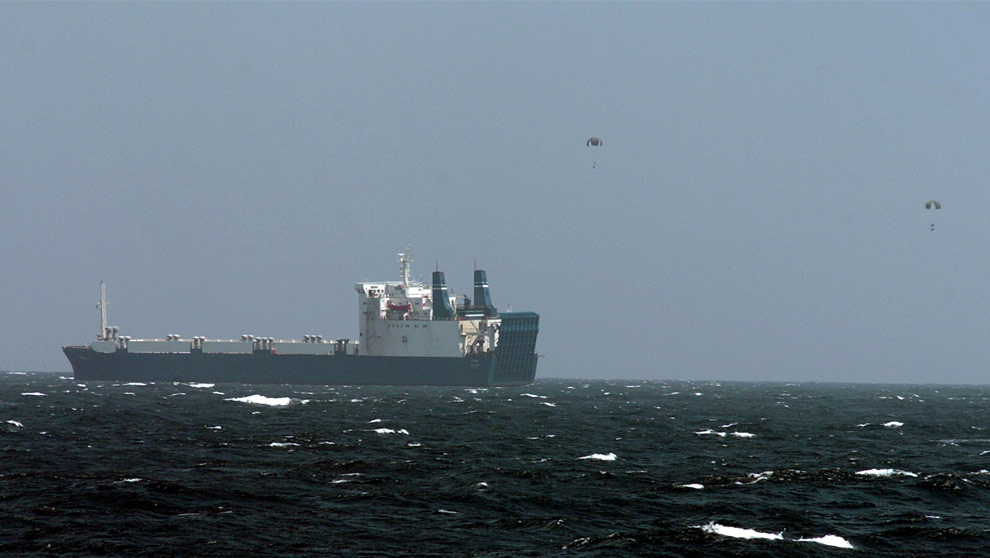
In
this photo provided by the U.S. Navy, ransom money is dropped near the
Ukrainian cargo ship MV Faina while under observation by a U.S. Navy
ship February 4, 2009 off the coast of Somalia near Hobyo. Pirates did
not leave the ship until February 5. (Michael R. McCormick/U.S. Navy via
Getty Images) #
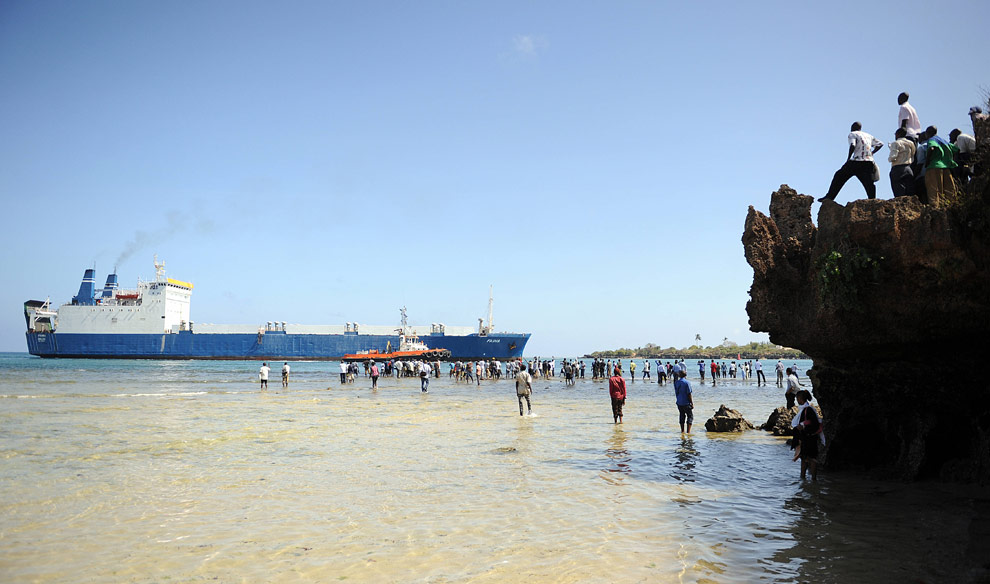
The
Belize flagged MV Faina is escorted by a Kenyan port authority tug
vessel into the port of Mombasa, Kenya on February 12, 2009, after it
was released by Somali pirates a week ago. It arrived in Mombasa amid a
raging controversy over its cargo of battle tanks and ammunition. While
Kenya has always said the shipment was for its armed forces, several
experts and diplomats in the region have revealed it was in fact
destined to the government of South Sudan and was the fifth delivery of
its kind in less than two years. (TONY KARUMBA/AFP/Getty Images) #
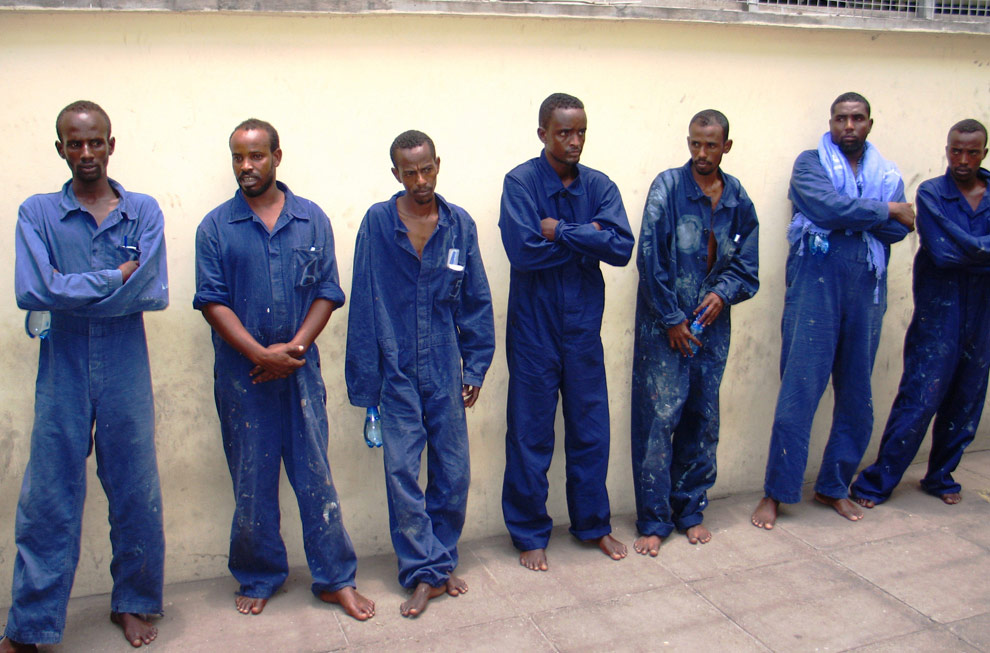
Suspected
pirates wait to be moved at the port in Mombassa, Kenya, Tuesday, March
10, 2009, after they were handed over to Kenyan police by the German
navy who arrested them off the coast of Somalia the previous week. The
frequency of attacks has actually increased since last year: 31 reported
were reported in January and February compared to 111 for the whole of
2008, but the pirates are finding it harder to seize vessels. (AP Photo)
#
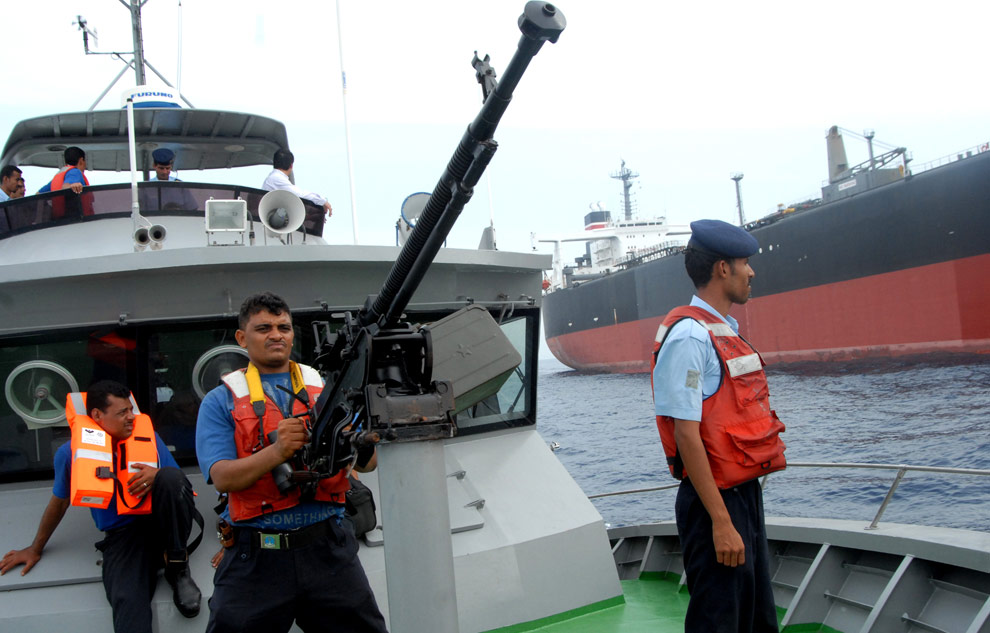
File
picture dated April 22, 2008 shows Yemeni coast guards on standby next
to the damaged Japanese tanker Takayama, that was attacked by pirates
following its arrival in the southern Yemeni port of Aden. Half of the
its members don't know how to swim and they don't have enough boats,
leaving Yemen's coast guards struggling to meet the enormous maritime
challenges facing one of the world's poorest nations; piracy. (KHALED
FAZAA/AFP/Getty Images) #
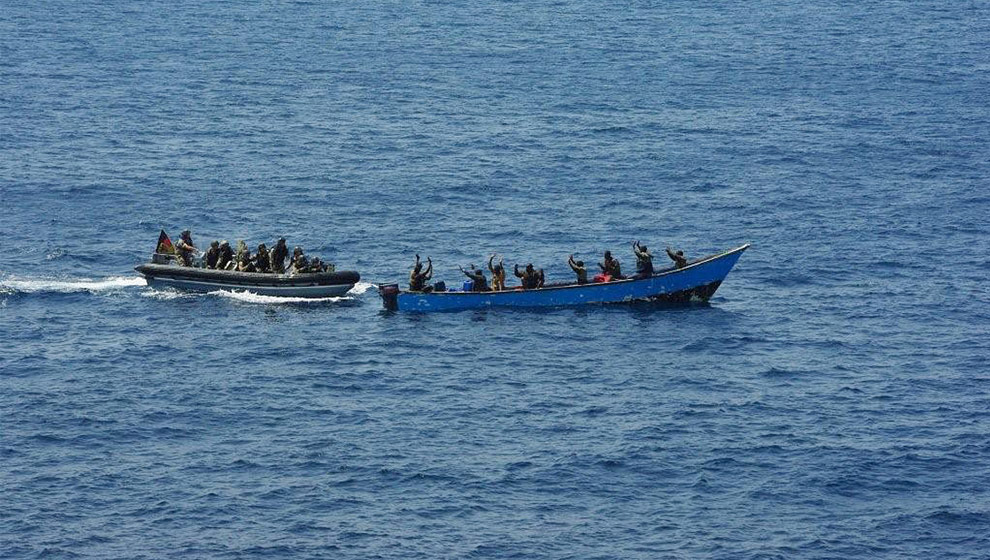
German
Bundeswehr soldiers approach pirates in the Gulf of Aden off Somalia on
March 3, 2009, after the German frigate Rheinland-Pfalz had received a
distress call from a German-owned container ship saying she was under
fire from pirates armed with bazookas and machine guns.
(BUNDESWEHR/AFP/Getty Images) #
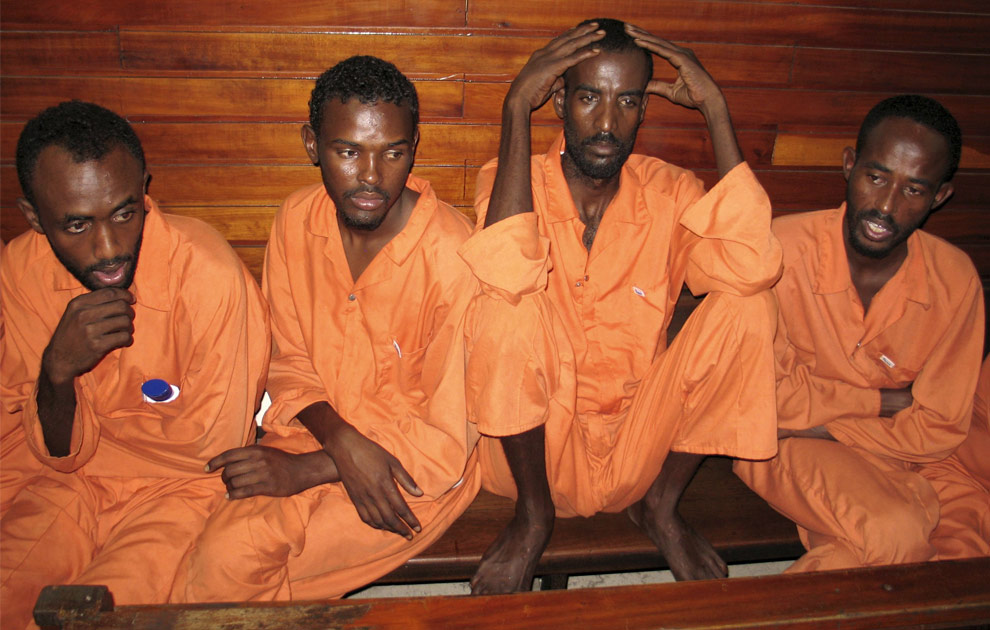
Suspected
Somali pirates sit in the dock inside a court of law in the Kenyan
coastal town of Mombasa March 6, 2009. The United States had turned over
seven suspected Somali pirates to Kenya for prosecution for the first
time under a bilateral pact that opened the way for the U.S. Navy to
capture pirates on the high seas. (REUTERS/Joseph Okanga) #
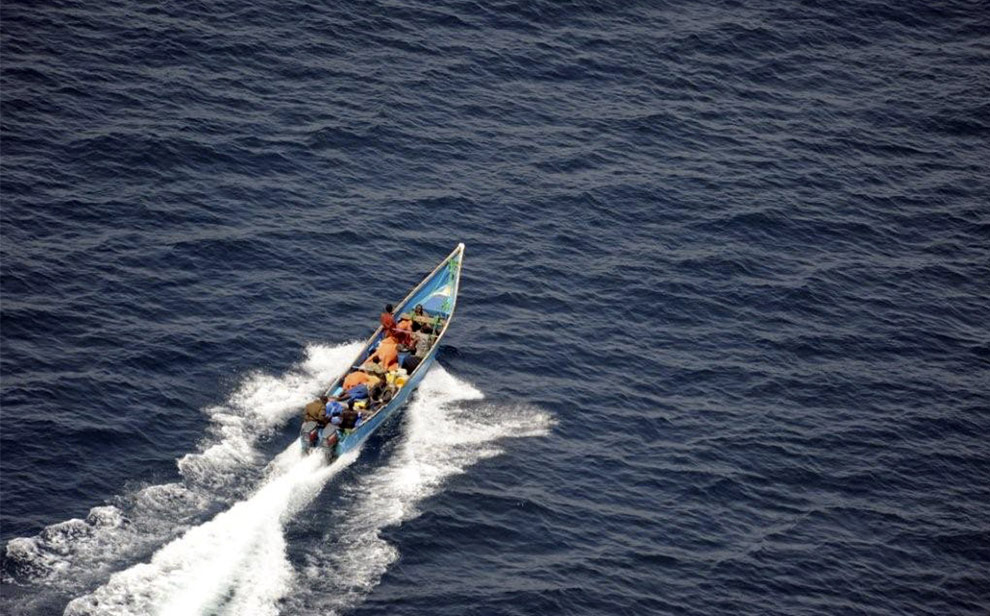
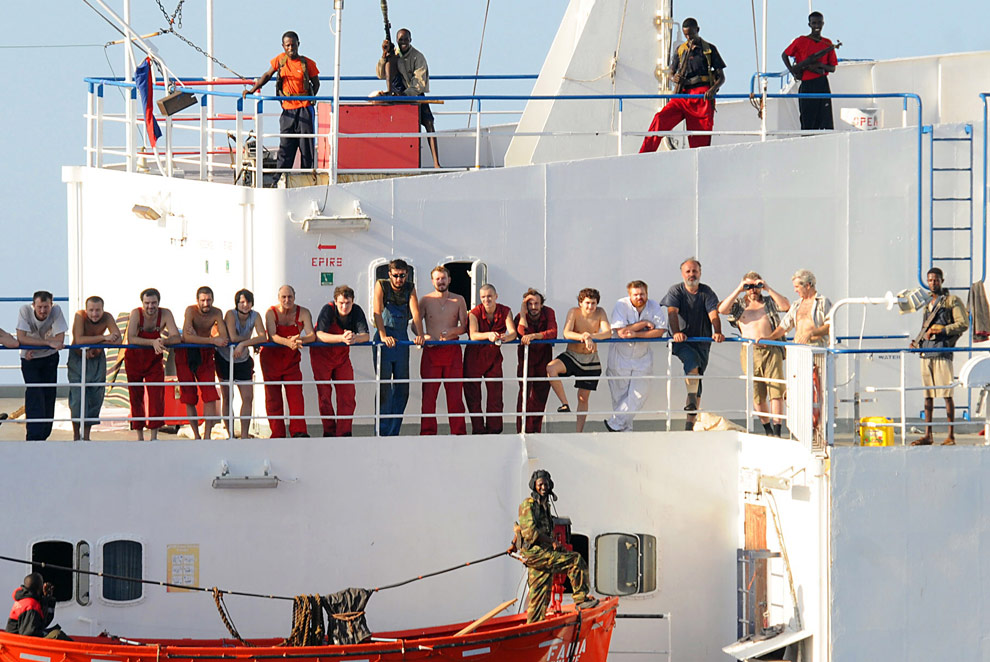
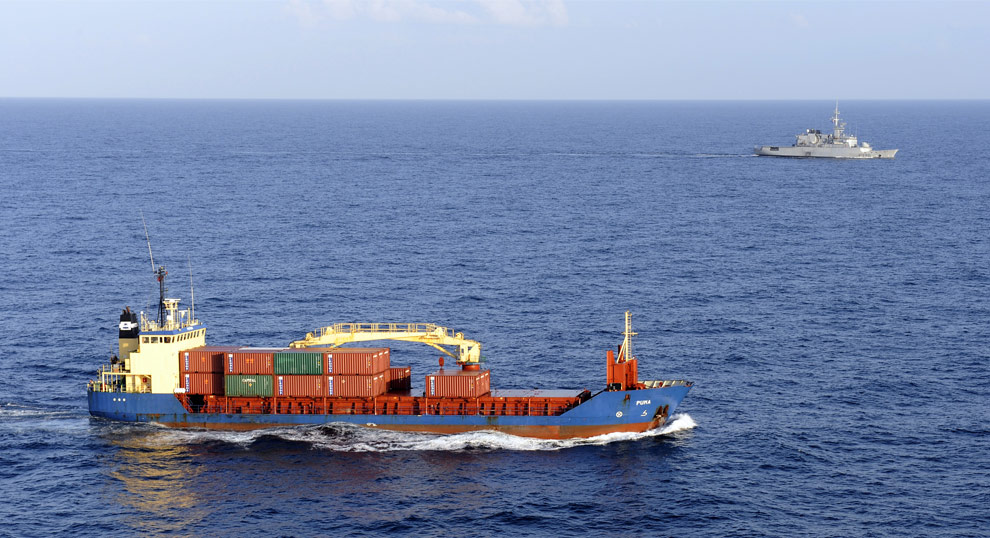
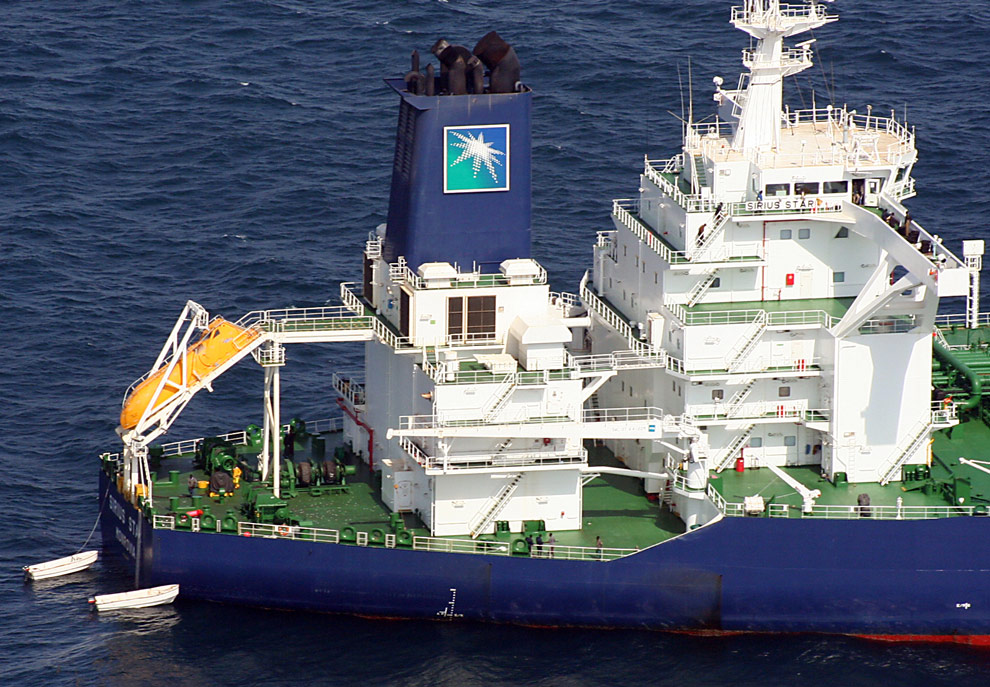

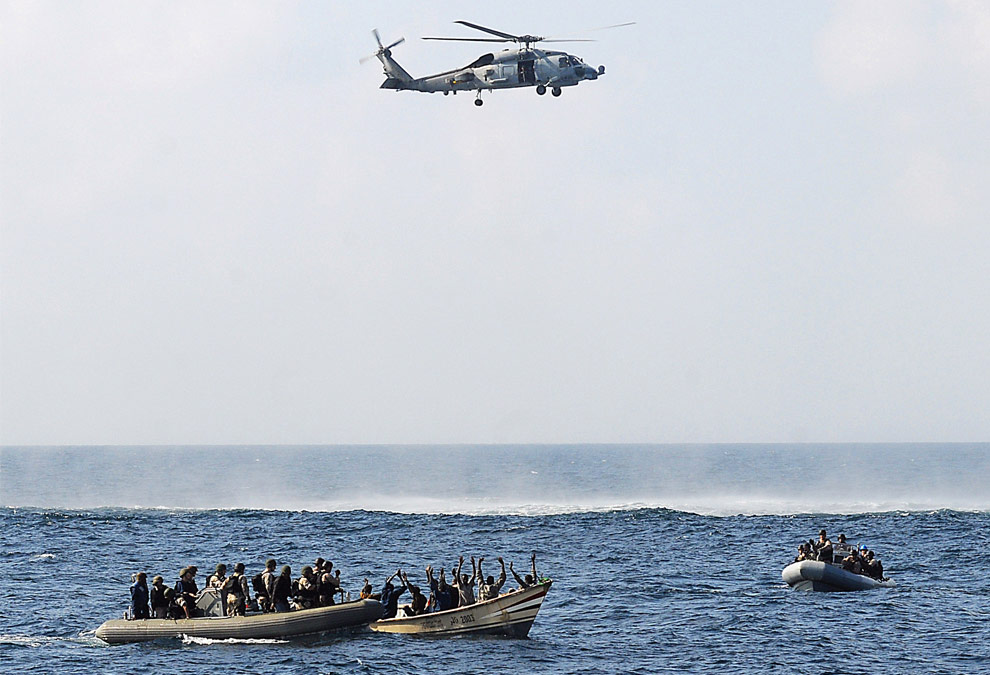
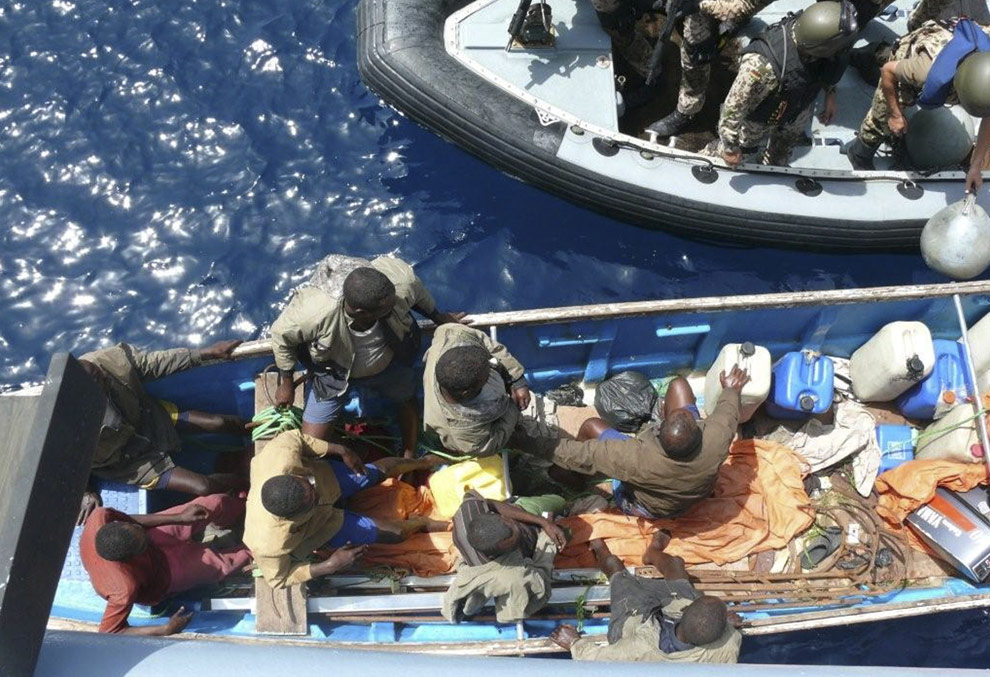
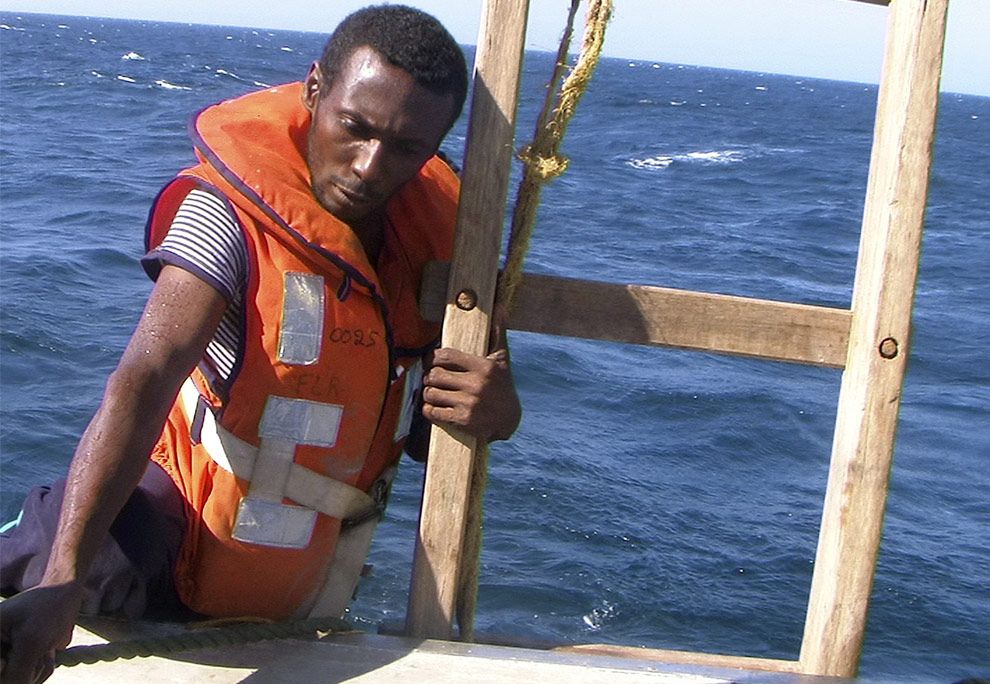
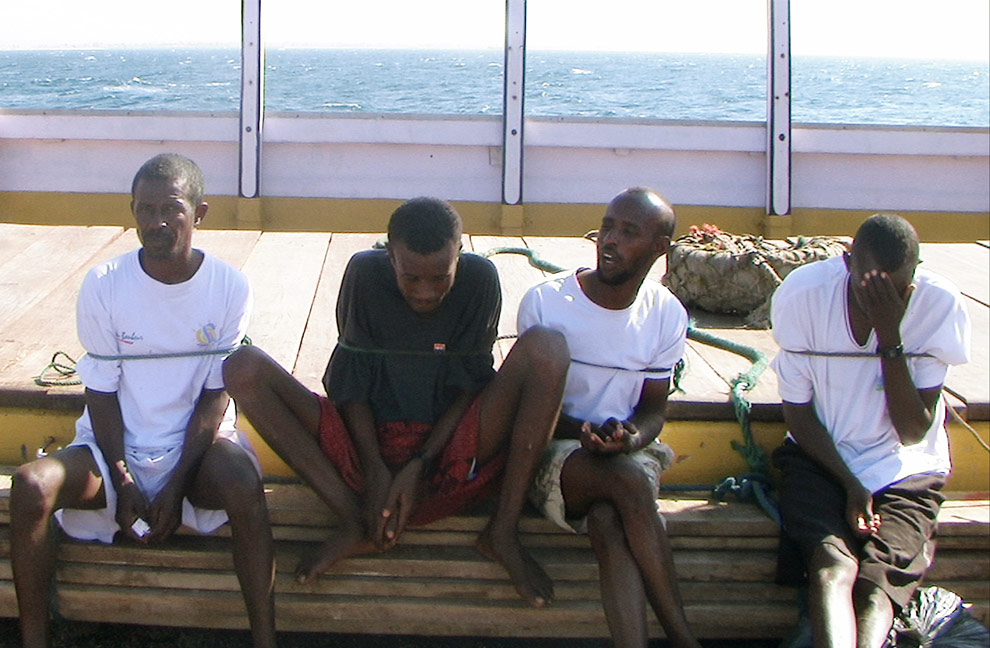
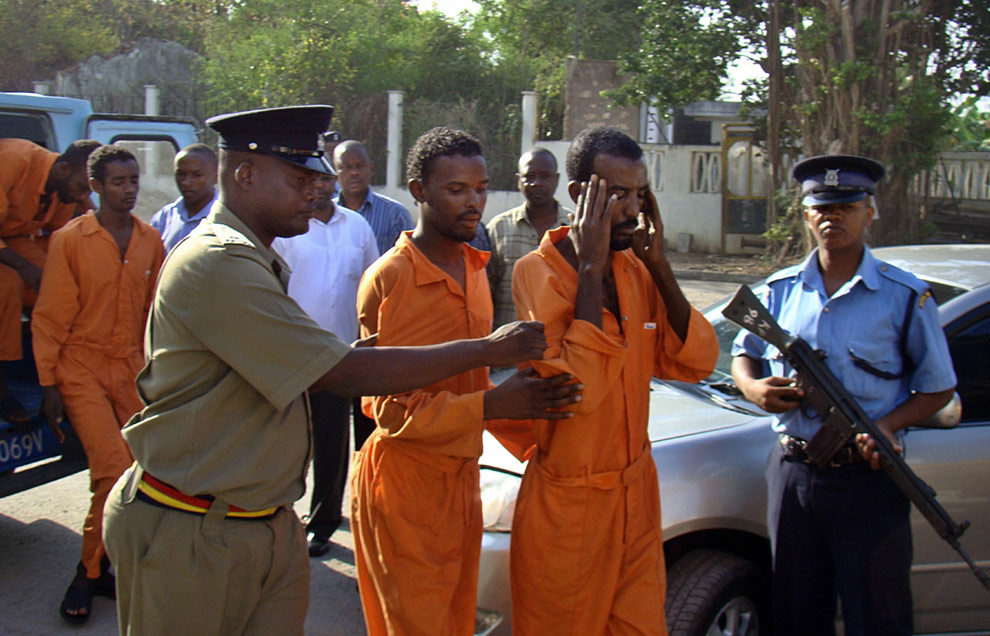
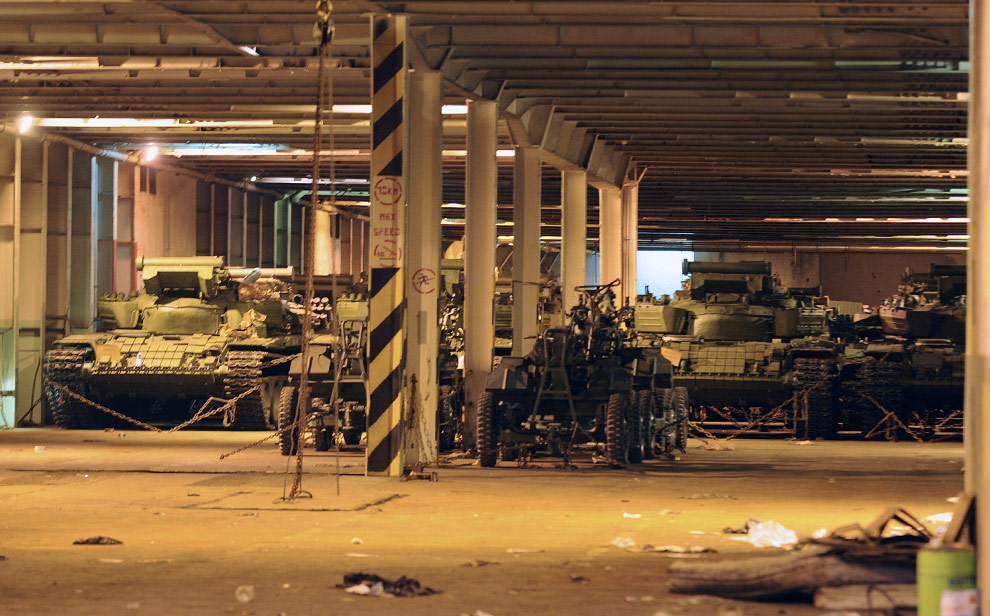
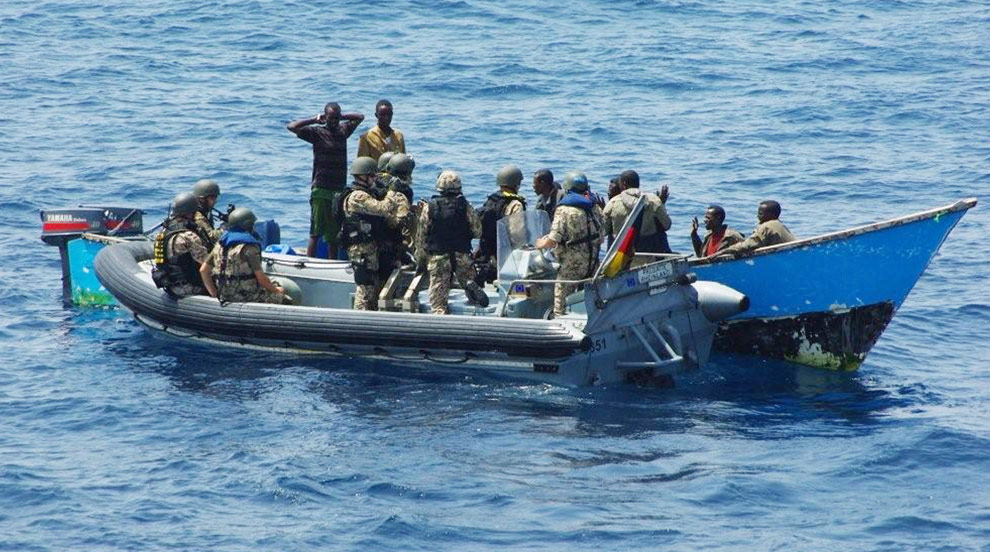
No comments:
Post a Comment